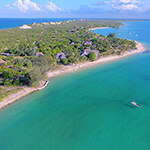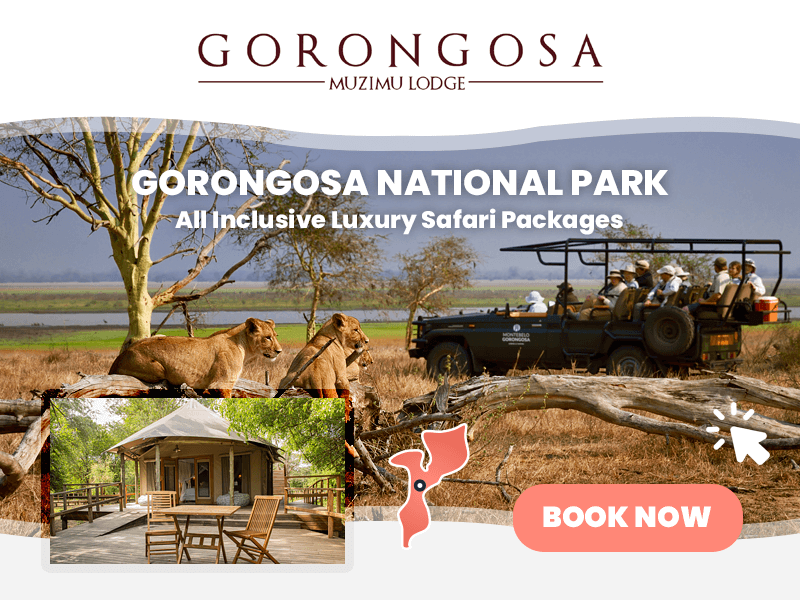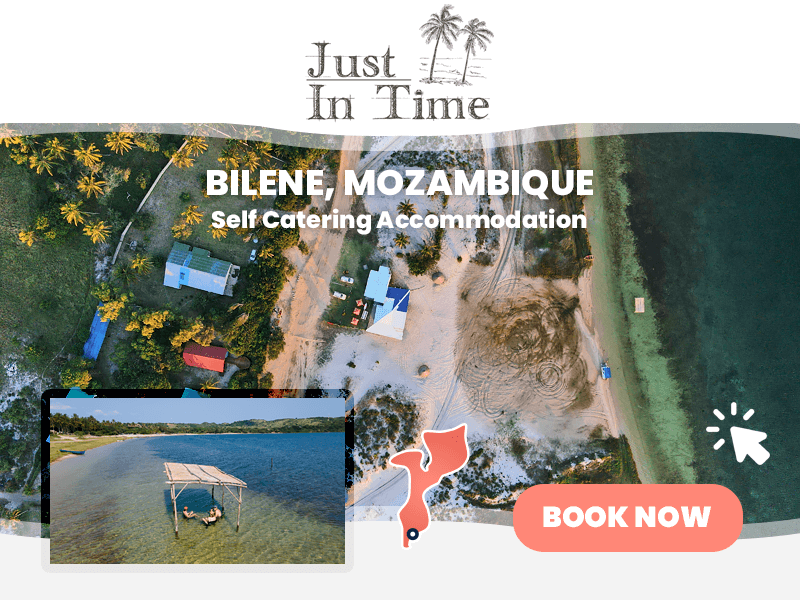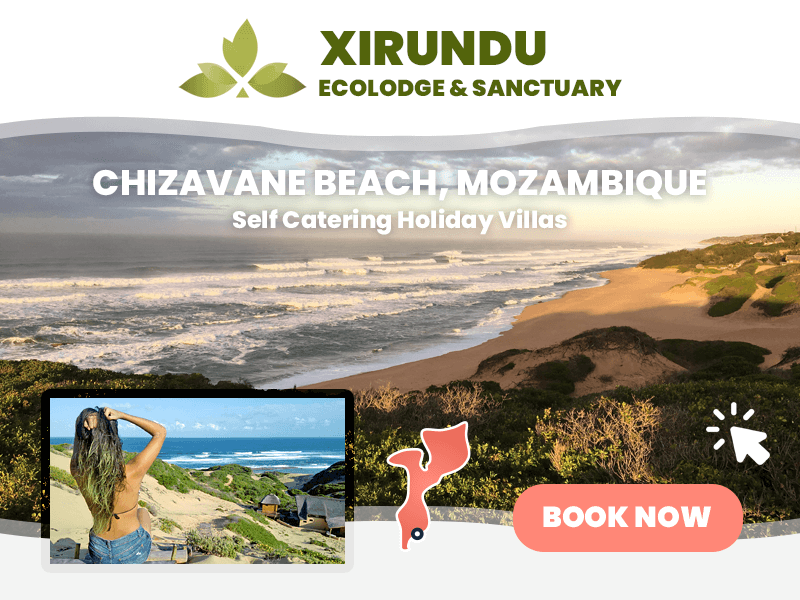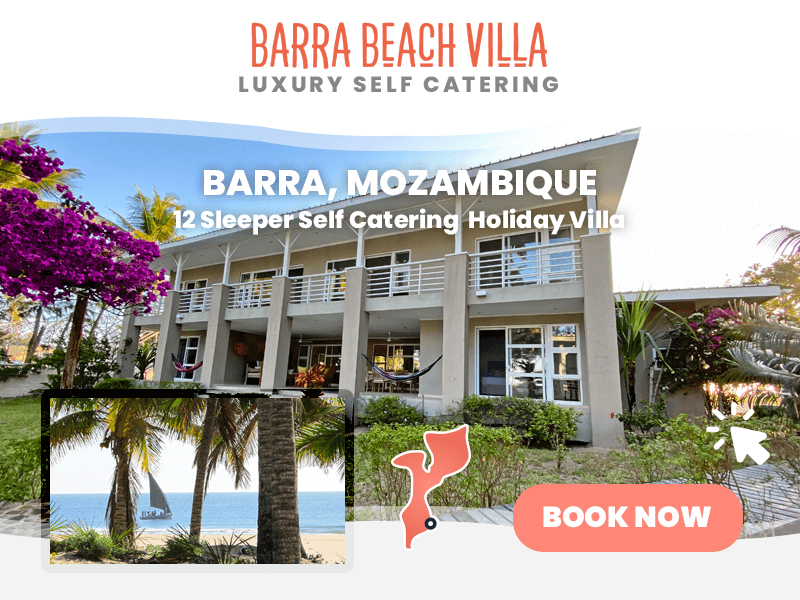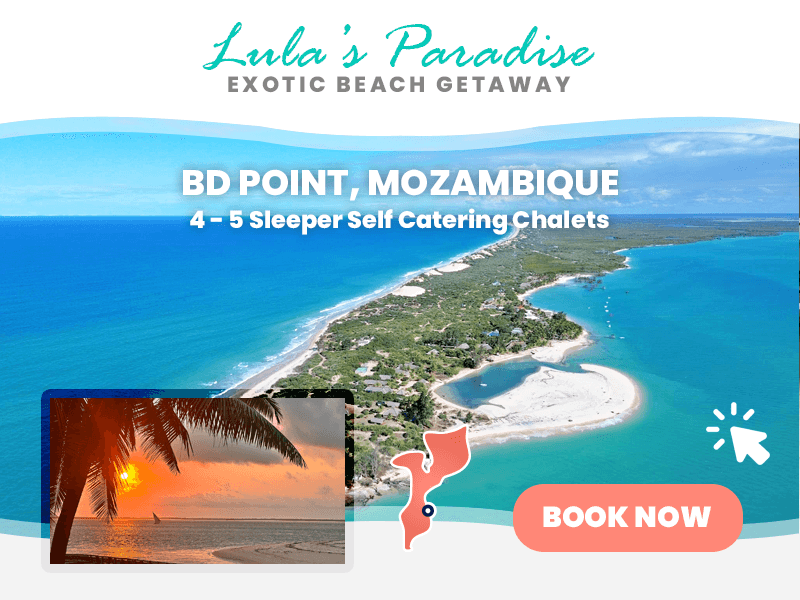Summary Index:
- Mozambique Health, Medical & Vaccinations
- Malaria in Mozambique
- Mozambique's Climate
- What Clothes to Take into Mozambique
- Mozambique Currency, Credit Cards & Banks
- Cell Phone & Internet Reception in Mozambique
- Drinking Water & Tap Water in Mozambique
- Mozambique Electricity
Mozambique Health, Medical & Vaccinations:
Mozambique's health infrastructure is very limited for those requiring urgent health needs or assistance in case of a serious accident. The capital of Maputo is the best place to go for any medical attention in Mozambique. It is highly recommended travellers into or through Mozambique pack a comprehensive first aid medical kit for incidents that require immediate attention.
Yellow Fever Vaccines: Travellers to Mozambique must provide officials a valid yellow fever vaccination certificate if they are arriving from areas or countries infected with the yellow fever virus. A letter of medical exemption from a qualified medical practitioner is required if a yellow fever vaccination is contraindicated for medical reasons.
Comprehensive medical & travel insurance is advised.
Malaria in Mozambique:
Mozambique as an entirety is a malaria risk area / country. It is important that you consult your doctor / physician for medical advice and what anti-malaria prescriptions to take prior to entering the malaria area zones in Mozambique.
Tip:
Understand some anti-malaria prescription courses need to start at least a week before entering a malaria area zone. Along with anti-malaria prescriptions, travellers are also strongly advised to bring other prophylactic measures to avoid mosquito bites and potential malaria contamination such as insect repellent sprays, mosquito coils and mosquito nets (most lodges already have mosquito nets fitted in rooms but do make the effort to confirm with the lodge prior). In addition, a pair of bottoms, socks and a light long sleeve top will further protect your skin from bites - basically comfortable clothes to cover the body as much possible.
More about Malaria in Mozambique, Prevention & Health Tips
Mozambique's Climate:
The weather in Mozambique is celebrated for it's warm, tropical climate. The temperature averages around 28°C whilst the weather adjacent to the coast line is sunny and warm even in the middle of winter. As in any area the most rainfall occurs during summer, which in Mozambique is from October to April. This time of the year is known to be humid and hot along with the expected rainfall.
From April to September you will experience the cold, dry winter that Mozambique has to offer. This is believed to be the better period for travel and the prime time to travel to Mozambique. There are howewer regional variations when dealing with the rainfall patterns. The inland areas Nampula and Niassa are cooler but more humid in comparison to the to the country's coast line. This is due to the relief that the evenings cooler temperatures grant the inland areas.
In the North of Mozambique, there is an abundance of water due to the fact that there is a copious amount of rainfall in this area compared to the South of Mozambique where the rainfall is minimal and there are prolonged seasons of droughts.
The North - eastern coast of Mozambique is believed to be the hottest and most humid found in the country. Conditions could become uncomfortable and even intolerable, overseas visitors not accustomed to the uncommon weather Mozambique has to offer would do well to pass through to the inland where the weather is cooler.
In the South parts of the country the rainfall is peaking during the months of October through to March while in the Northern parts there is a six week extention either way. Annual rainfall along the coastal line averages between 800 to 900mm. In the rainy season the likelihood of floods are at its peak, widespread flooding around river basins like the Zambezi are not uncommon.There is also a great risk of cyclones along the coastal areas of central Mozambique.
The Sun heralds the arrival of a magestic summer as the clouds give way to the glorious rays signaling superb conditions for the entire country, as May brings forth the end of the rain. The weather in Mozambique is at it's best during the winter months and believed to be the most pleasant. The skies are crystal clear with not a cloud in sight and rainfall is something of the past. April to September are known as the dry season as the humidity drops considerably.
Southern Mozambique: Southern Mozambique's Rainy season (summer) is from October to March and the Dry Season is from April to September (winter). During the Summer, rainfall averages between 800mm to 900m and flooding is not uncommon. More pleasant weather is usually experienced during the Winter / dry seasons where the humidity is lower and temperatures aren't too hot.
Central Mozambique: Central Mozambique's Rainy season (summer) is from October to March and the Dry Season is from April to September (winter). widespread flooding around river basins like the Zambezi are not uncommon.There is also a greater risk of cyclones along the coastal areas of central Mozambique. More pleasant weather is usually experienced during the Winter / dry seasons where The inland areas Nampula and Niassa are cooler but more humid in comparison to the to the country's coast line. This is due to the relief that the evenings cooler temperatures grant the inland areas.
Northern Mozambique: Pemba is located in the Northern part of Mozambique that experiences a very tropical climate. Northern Mozambique's Rainy season (summer) is longer than the Southern Part of Mozambique's Rainy season from September to April, and the Dry Season is from May to August (winter). Beacause Northern Mozambique is closer to the Equator,weather in the Northern Part of Mozambique is very much Humid through out the year.
What Clothes to Take into Mozambique:
Clothing plays a major role in your overall well being and experience in Mozambique, therefore it's essential you pack appropriate clothing for comfort and protection against natural elements!
Tops & Bottoms: Regardless whether you travel to Mozambique during winter or summer, be sure pack a jacket / fleece / hoodie / sweatshirt as well as a pair of jeans / trousers / joggers / sweatpants for those colder mornings & evenings. Temperatures during winter (especially inland within areas of higher altitude) can get quite cold so it's important to wear warm clothing especially during those early mornings and late evenings. Summer days in Mozambique can get extremely hot with temperatures soaring well over 30°C / 86°F, therefore pack a few light t-shirts / vests and shorts to keep your body cool.
Footware: Be sure to pack a pair of comfortable hiking boots or at least a pair of running shoes to protect your feet from the hot earth, rough terrain and insects. We also advise you pack a pair of sandals for those casual times on the beach to allow your feet to cool & breathe on those hot summer days.
Headwear: Bring a cap / hat to protect your head & face from the sun and perhaps a beanie to keep your head & ears warm during those cooler winter days.
Pyjamas: We recommend you pack light pyjamas with long sleeves, long pants and socks to further protect your body against insect / mosquito bites and the itches as a result (even if you are sleeping under a mosquito net).
Tip:
If you plan on hiking or trekking on foot at any point during your stay in Mozambique, then be sure to check your legs regularly for ticks because they are known to cling to the ends of leaves & grasses whilst waiting patiently for a host to pass by and to latch onto.
Mozambique Currency, Credit Cards & Banks:
Mozambique's currency is called Metical (plural: Meticais) and banknotes are in denominations of 20, 50, 100, 200, 500 and 1000 Meticais. 1 Metical is the equivalent of 100 Centavos. Coins are provided in denominations of 50 centavos, 1, 2, 5 and 10 meticais.
Mozambican Metical Currency Code: MZN
"Mt" or "MZN" - These are the symbols you'll see alongside (some) prices / rates in Mozambique.
Currency Conversion Services:
Travellers to Mozambique can quite easily convert the South African Rand, US dollar (only new-design), British Pound and Euro currencies into Meticais at bureaux de change and banks in main towns & cities, eg: Maputo. Do not rely on smaller towns for currency exchange services.
Changing Money at Exchange Bureaus: The best places to change money is at Casas de câmbio (exchange bureaus). Their operating hours are generally longer than that of banks and offer a much more competitive exchange rate (slightly higher or equivalent).
Changing Money at General Banks: If you are unable to reach an Exchange Bureau then you should be able to do an exchange at a BCI branch (recommended). Only account holders of Millennium BIM branches allow cash changes. Although most banks don't charge a commision levy for currency exchanges - do remember to confirm this prior.
Travellers Cheques: Mozambique does not accept Travellers Cheques for direct payment or exchange.
Credit Cards & ATMS:
Major credit cards including MasterCard and foreign Visa cards are accepted by most upmarket hotels, lodges, restaurants, retail outlets & vehicle rental services.
Visa cards can be used to draw money out of ATMs found in Mozambique's larger towns & cities however you may struggle to draw money using MasterCard at Millennium BIM and Standard Bank machines.
If you are travelling to a rural or remote location in Mozambique then keep in mind that some shops and fuel stations can only accept cash, and may not have any ATMS (or functioning ATMs) to draw money out of - therefore cash in hand is very important. Note: Diners or American Express credit cards aren't accepted by some businesses in Mozambique.
Bank Withdrawal Limits:
- General limit: Mt 3000 / USD 120
- BCI limit: Mt 5000 / USD 200
- Standard Bank limit: Mt 10,000 / USD 400
Commercial Banks:
There are 18 commercial banks in Mozambique:
- BancABC
- Banco Comercial e de Investimentos (BCI)
- Banco Mercantil e de Investimentos (BMI)
- Banco Nacional de Investimentos (BNI) (National Investment Bank)
- Banco Tchuma
- Banco Terra
- Banco Société Générale Moçambique (SGM)
- Banco Unico
- Barclays Bank
- First National Bank Mozambique
- First Capital Bank (FCB)
- Millennium BIM (BIM)
- Moza Banco
- MBC Bank Mozambique (MBC)
- Procredit Bank
- Socremo Microfinance Bank
- Standard Bank
- United Bank for Africa
Banking Hours:
This may vary depending on the bank / bank branch but operating hours are generally from:
08:00am → 15:30pm on Mondays to Fridays
08:00am → 13:30pm on Saturdays (or closed).
Sunday: Closed
Cash in Hand:
When travelling to Mozambique via vehicle, make sure you carry a sufficient amount of cash in your local currency for border fees because not all border posts accept credit cards nor have the facilities to do an electronic transaction as such. Most border posts accept currencies from the country you're entering from however kindly contact the border authorities directly to confirm.
Tip:
Many local arts & craft markets, stalls and cultural sites only accept cash - so be sure to carry a decent amount of Pula and your local currency to avoid missing out on purchasing that perfect souvenir to take back home.
Cell Phone & Internet Reception in Mozambique:
Mozambique has great cell phone reception / coverage in major cities, towns, national roads (along the EN1 in particular) and where most holidaymakers visit. However you may experience little or no reception in very remote areas up in northern Mozambique.
Avoiding Expensive Roaming Fees: To avoid international call rates and expensive roaming fees, it is recommended that you purchase a MCel SIM card starter pack when arriving to Mozambique. You should be able to purchase a starter pack from most supermarkets and some convenient stores in all major cities & towns. You can then have peace of mind knowing that calls, data usage and SMS messages will be charged at local rates (and not at roaming rates).
Country Calling Code: Mozambique's country calling code is +258. International callers outside of Mozambique will have to include +258 before the contact number (alternatively 00258). National callers of Mozambique do not need to include their own country calling code (+258) to reach a contact number.
Drinking Water & Tap Water in Mozambique:
Visitors to Mozambique must excerise caution and treat all tap water (whether it's for drinking, making ice or being used for brushing teeth) as a health risk unless otherwise stated by someone who is well informed about the tap water available to you (like the owner / manager of a lodge). It is recommended that all visitors to Mozambique bring bulk bottled water along or bottled water purchase in Mozambique which is widely available in most major towns and cities.
Boiling Dirty Water: If you ever find yourself in a situation where you have no access to clean water, then boiling dirty water for up to 10 minutes is one of the easiest and most efficient ways of getting rid of waterborne viruses, bacteria and other pathogens. However this will not get rid of any chemicals that may have contaminated the water. Depending how murky or dirty the water is - it is advised you filter the water first before boiling it to help remove particles and the dark colour out of the water (this initial technique does NOT remove bacteria and pathogens). Most fabrics should work but special cloth filter (created specifically for filtering dirty water) would be ideal if you could get your hands on some before leaving for Mozambique.
Ask the Lodge: If you are currently looking for accommodation or have already booked accommodation in Mozambique, then do ask the reservations department or someone in a managerial position if the tap water is safe to drink so that you can plan your vacation accordingly. Upmarket holiday lodges in Mozambique generally supply guests with filtered / clean drinking water - but do confirm with them first.
Mozambique Electricity:
Mozambique uses Type C (2 round pins), Type F / Schuko plug (2 round pins with alignment grooves) and Type M (3 round pins) plugs & sockets.
If you are coming from a country that:
1) Doesn't use these types of plugs / sockets or
2) Uses plugs that is not compatible with Mozambique's type of sockets (see below) or
3) If you're unsure which one of the sockets above (in bold) will be available at the lodge you're staying at ...
... then you'll need to pack and / or buy the correct power plug travel adapter for your electrical appliances and devices in order to fit the sockets in Mozambique.
Compatibile plugs with Mozambique's sockets:
Type C sockets - only works with Type E & Type F plugs
Type F sockets - only works with Type C & Type E plugs
Type M sockets - only works with Type M plugs
Electricity in Mozambique operates at 220/240V supply voltage and 50Hz.
Tip:
Contact the lodge you're staying at to confirm what type of plugs / sockets they're using to save you time.
Click on the tabs above for more information
Click on the tabs above for more information
